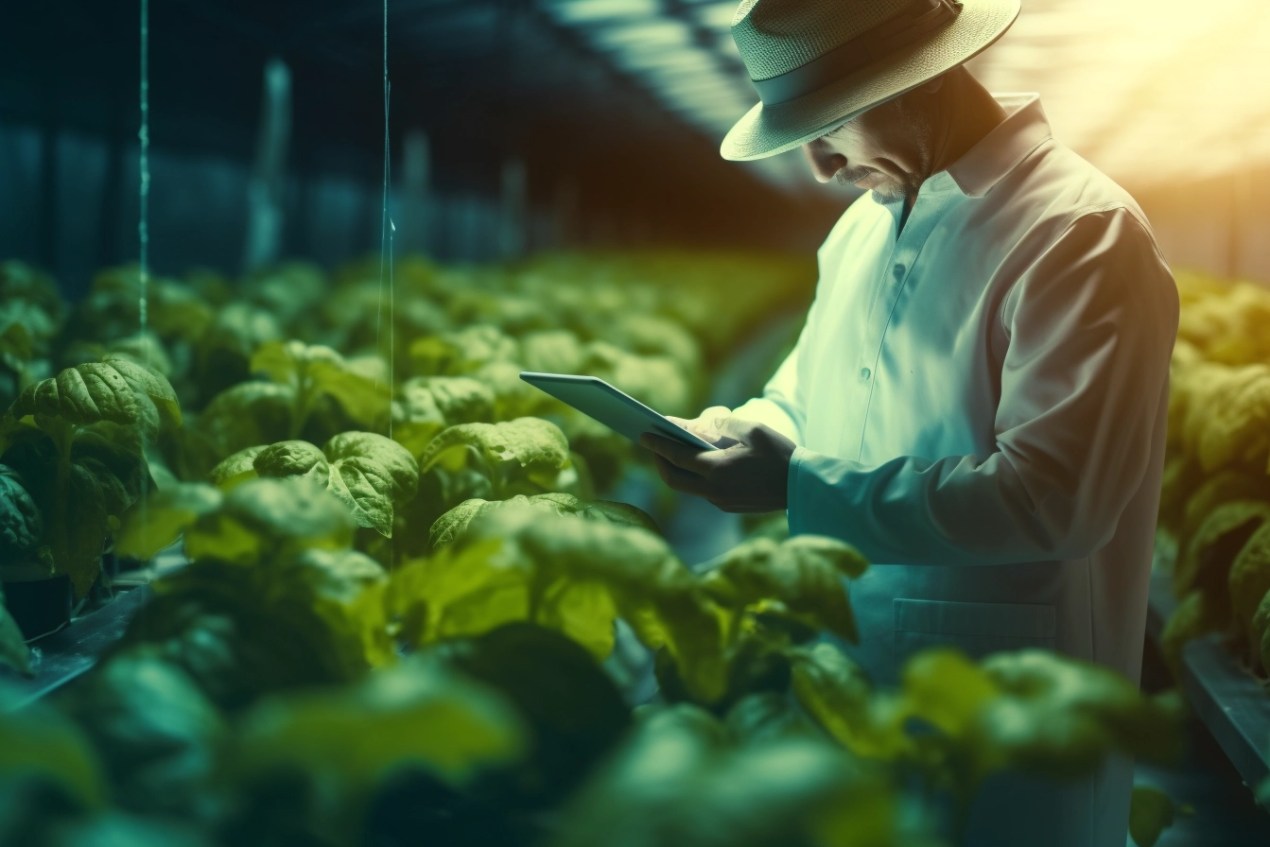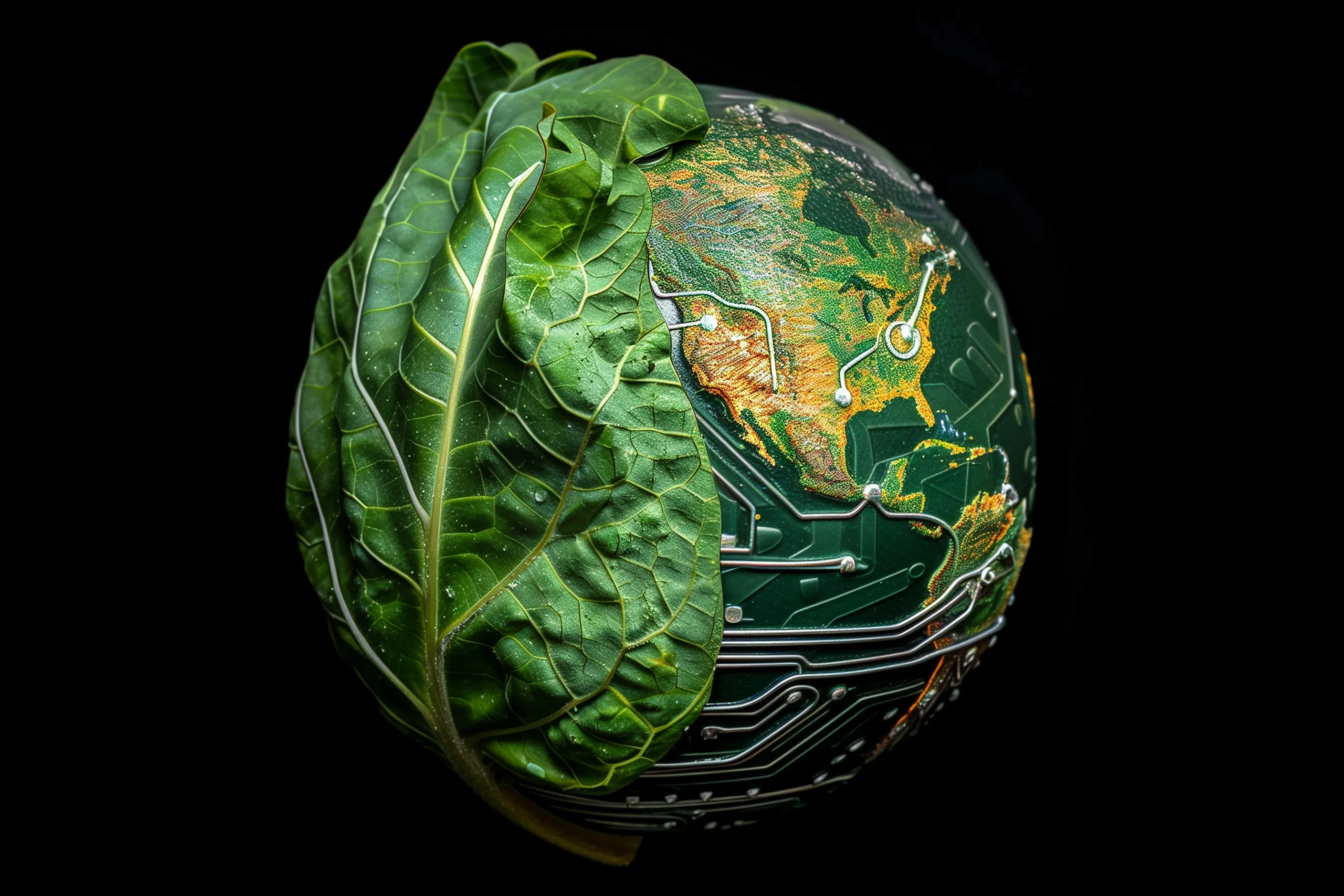published May 15th, 2023 | 7 min read
In our modern world, the food choices we make have a significant impact on the environment. From the prevalence of fast food and processed meals to excessive meat consumption, our current food culture is taking a toll on our planet. However, there is hope on the horizon as artificial intelligence (AI) technology emerges as a powerful tool in guiding us toward more sustainable food choices. In this blog post, we will dive into the fascinating realm of AI and its implications for the food industry, uncovering how this innovative technology can help us create a greener future.

a collage of diverse food choices
The Food Culture We Live in Today
Our food culture today is dominated by convenience, speed, and indulgence. Fast food restaurants are on every corner, and processed foods line the supermarket shelves. The demand for meat is soaring, resulting in extensive livestock production and deforestation. This culture of instant gratification has consequences for our environment, as the carbon footprint of our food choices continues to grow. It’s time to reevaluate our habits and explore sustainable alternatives.




environmental degradation of current food culture
AI Technology and Its Implication in the Food Industry
Artificial intelligence is revolutionizing industries worldwide, and the food industry is no exception. AI refers to the development of computer systems capable of performing tasks that typically require human intelligence. With the ability to analyze vast amounts of data and extract meaningful insights, AI technology holds immense potential in transforming our approach to sustainable food consumption.




AI-powered robot in the food industry
AI-Powered Sustainable Food Choices
Imagine having a personal food advisor who understands your nutritional needs, environmental concerns, and ethical considerations. AI can make this a reality by providing personalized recommendations for sustainable food choices. By considering factors such as the nutritional value, environmental impact, and ethical sourcing of food products, AI-driven apps and platforms can guide individuals toward making informed decisions that align with their values.




a person selecting sustainable food options from a virtual menu
Minimizing Food Waste with AI Food waste is a significant problem globally, contributing to both economic and environmental losses. AI technology can play a crucial role in reducing food waste throughout the supply chain. By utilizing AI-powered inventory management systems, predictive analytics, and smart refrigeration solutions, food producers and retailers can optimize their operations, minimize spoilage, and ensure that food reaches consumers before it spoils.
AI in Sustainable Agriculture
The agricultural sector is undergoing a transformation with the integration of AI technology. Precision farming techniques, such as soil monitoring, crop yield optimization, and water management, are being enhanced by AI-driven systems. By analyzing data collected from sensors and satellite imagery, AI algorithms can help farmers make informed decisions, reducing the use of pesticides, fertilizers, and water, and promoting sustainable agriculture practices.




a farmer using a tablet to access AI-driven insights
AI-Driven Supply Chain Optimization
Efficient supply chain management is essential for reducing energy consumption, lowering emissions, and improving logistics in the food industry. AI technology offers solutions such as route optimization, demand forecasting, and inventory management systems. By leveraging AI algorithms, companies can streamline their supply chain processes, minimize waste, and create a more sustainable food distribution system.




AI-powered sorting machines at a food processing facility
AI-Assisted Meal Planning for a Greener Future
Meal planning is a powerful strategy for sustainable eating, and AI can take it to the next level. AI-powered meal planning tools can suggest recipes and meal combinations based on seasonal and locally available ingredients. By reducing food miles, supporting local farmers, and minimizing the carbon footprint associated with transportation, AI-assisted meal planning helps us make environmentally conscious food choices.
Conclusion:
As we navigate the challenges of a changing climate and strive for a greener future, AI technology emerges as a promising ally in our sustainable food journey. By harnessing the power of AI, we can make informed choices, minimize waste, and support eco-friendly practices













